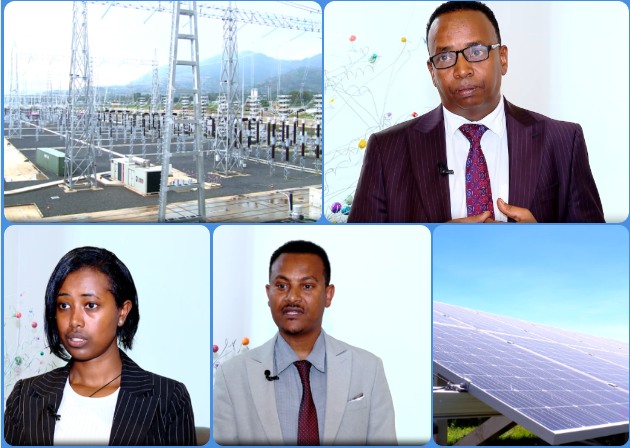Ethiopia’s Electricity Coverage Reaches 54 Percent - ENA English
Ethiopia’s Electricity Coverage Reaches 54 Percent

Addis Ababa, August 18, 2025 (ENA) - Ethiopia’s Ministry of Water and Energy announced that the country’s national electricity coverage has reached 54 percent of the population, a result of sustained government efforts to expand power supply by harnessing multiple energy sources.
In an exclusive interview with ENA, State Minister of Water and Energy, Sultan Wali, said the government has designed a new program aimed at further accelerating electricity access for citizens.
According to the state minister, the progress achieved so far reflects the country’s continued efforts in expanding power supply through both grid extension and alternative energy sources.
He noted that priority is being given to off-grid solutions for communities not yet connected to the national grid.
The state minister also highlighted the role of financial institutions and development partners in financing such projects, underscoring their contribution to Ethiopia’s broader electrification drive.
According to the state minister, the progress achieved so far reflects Ethiopia’s continued efforts in expanding power supply through both grid extension and alternative energy sources.
Beyond the national grid, special focus is being placed on electrifying remote villages through solar and biogas technologies, he said, adding that Ethiopia’s solar energy sector has grown significantly, with notable improvements in wattage output making solutions more affordable for citizens.
Misrach Sisay, Director General of the Ethiopian Solar Energy Development Association, also confirmed that recent measures have encouraged greater private sector participation in the renewable energy sector.
According to her, more than 100 member companies are currently providing solar-powered solutions to rural communities.
She further underlined the importance of expanding technological support to enhance agricultural productivity and called for low-interest loans to help farmers adopt renewable energy solutions.
Geremew Kefyalew, Business Development Team Manager at Oromia Cooperative Bank, also affirmed that the bank is working with development organizations to finance renewable energy projects.
However, he stressed that the lending capacity of financial institutions must be strengthened to meet the rapidly growing demand.
Meanwhile, the Ministry of Water and Energy recently signed an agreement with the International Solar Alliance (ISA) to implement solar mini-grid and solar park projects.
The partnership is expected to boost financial and technological cooperation, particularly in applying solar energy for irrigation and drinking water supply.
Ethiopia’s progress is being achieved through a combination of on-grid and off-grid solutions, ranging from large-scale infrastructure projects like the Grand Ethiopian Renaissance Dam (GERD) to smaller-scale solar and wind initiatives designed to reach all communities, ENA learnt.